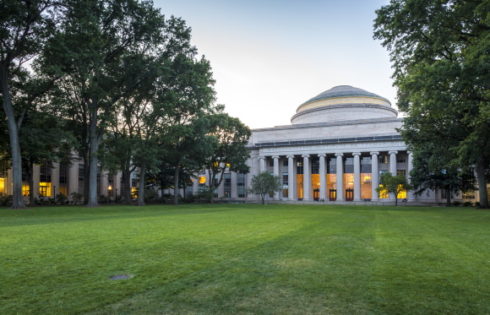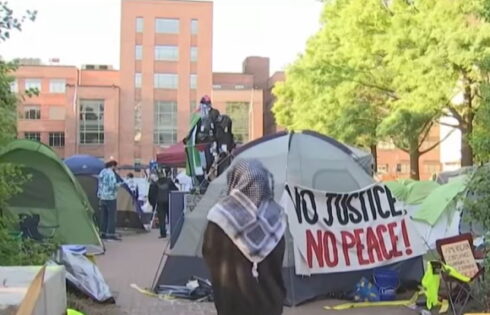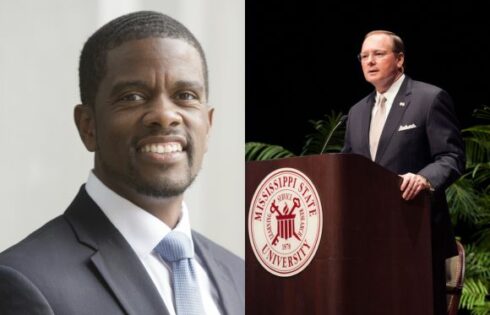Hello. My name is Kyle Cope, and I’m a statistic.
I am 25, unemployed, and have $150,000 in student loan debt.
My bachelor’s degree in financial mathematics and political science (double-major) from Asbury University in 2011 and my master’s degree from the Patterson School of Diplomacy and International Commerce at the University of Kentucky that I earned this past spring are impressive and all, but have not guaranteed me a job.
I spent my summer interning on Capitol Hill and at a Washington D.C. advocacy nonprofit. I’ve volunteered for several political campaigns. As an undergrad, I worked under a chief economist, and served as a researcher for the Financial Crisis Inquiry Commission
Heck, I’ve even worked as a commercial fisherman.
In short, I’ve done what it takes to stand out from the crowd, to prove I’m a smart worker, a hard worker. But dozens of resumes sent and job interviews later, and the Great Recession and my mountainous college loan debt looms large like darkened thunderclouds.
And I am not alone.
Student loans are a financial burden most college students shoulder after graduation. The average student loan debt stands at $27,000, a burden exasperated by the poor job market for grads, Forbes reports.
Back in the 1960s and 1970s, a person could work all summer and earn enough to pay for school the rest of the year. Between inflation and rising costs of tuition, that is no longer possible. Yet today, it is very difficult to survive or start out without at least a bachelor’s degree. Meanwhile, the recent grad generation is the most educated of all time, yet about half of them lack full-time employment.
I grew up in a low-income part of Washington state, and believed that if I worked hard in school, I could climb higher up the socio-economic ladder, but to do so would require several degrees. I believed that through hard work and ambition the American Dream could become a reality.
I still believe that.
However, now I have a double-major B.A. and a M.A. I am about $150,000 in student loan debt. Still working on that ladder, but you can see how I might be slightly biased toward the student here. If I could get rid of the loans via bankruptcy, would I? Not at this time.
But at least one organization claims that’s a viable solution.
Alan Collinge has made it his life’s mission to demand better rights for college students. In particular, he founded StudentLoanJustice.org in March 2005, and since then has aimed to highlight what he contends is a solution for students: bankruptcy.
The feds make billions of dollars off student loans annually. These government-backed loans – which are as easy to get as a gallon of milk at the store – have actually increased the price of a degree, as tuition prices have skyrocketed far greater than inflation rates and continue to do so because everyone can get a loan and administrators know it.
And the loans are guaranteed, but not in the way you might think. The feds can garnish social security checks or wages after a bankruptcy.
The mission of StudentLoanJustice.org is to compel the U.S. Congress to return standard bankruptcy protection to all student loans.
Collinge called it the “only way to stabilize the lending system, normalize prices, and compel better behavior by the government in its oversight of the system, the schools in the quality of education that they offer, and the prices they charge.”
In an email to The College Fix, he stated his argument is “rooted in conservative, free market principles.”
StudentLoanJustice.org has been credited with inspiring the “ ‘The Student Borrower Bill of Rights,’ and has broken numerous news items in the press with its research findings regarding conflicts of interest in the student loan system, Student Debt levels, Default Rates, corporate lobbying, governmental profiteering on defaults, and other areas,” Collinge stated.
The solution of StudentLoanJustice.org “ensures a significant lowering of college prices across the board, better academic quality, and also lower defaults, and a far lower cost to the taxpayers when implemented. This is how the invisible hand of traditional free-market systems should and must work,” he added.
As a recent grad, I might be biased, but I do not believe student loan debt is a choice for some who wish to be successful in life, yet cannot afford to pay for college out of pocket. Thomas Jefferson listed the Pursuit of Happiness as one of our unalienable rights; I suggest that pursuing success and the American Dream are part of that right. We are not entitled to success, nor the American Dream, however with hard work and education one hopes to make both success and the American Dream a reality.
And Collinge’s solution is viable for students now who find themselves with no other options, but the issue itself is much deeper.
America must strengthen its currency and return to responsible fiscal policy in a manner that promotes economic growth so that debt is not needed to finance education, as well as other life expenses.
Fix contributor Kyle Cope earned a B.A. from Asbury University and M.A. from the University of Kentucky.
CLICK HERE to Like The College Fix on Facebook / TWITTER: @CollegeFix




Please join the conversation about our stories on Facebook, Twitter, Instagram, Reddit, MeWe, Rumble, Gab, Minds and Gettr.